I am honored to welcome historical mystery author Harriet Steel to my blog today!
Her novel Trouble in Naula transports readers to Sri Lanka and introduces us to her gentle and intelligent Inspector de Silva. Today she shares how a BBC competition changed her life, why Inspector de Silva is happily married, her interest in Lola Monetz, and the importance of setting in a novel. She also gives us a sneak peak of her work-in-progress – Taken in Nuala – which is Inspector de Silva’s first kidnapping case!
I hope you enjoy learning more about Harriet, her inspirations, and books.
Please tell me a little bit about yourself, your books and writing career.
 Thank you so much for inviting me, Jennifer. It’s a real pleasure to be here.
Thank you so much for inviting me, Jennifer. It’s a real pleasure to be here.
I’m married with two grown-up daughters and two, soon to be three, grandchildren. My husband and I live in Surrey in the UK. It’s near London but very rural in parts and we both enjoy walking in the countryside near home. Apart from walking, I like to spend time with family and friends, go to the theatre and visit art galleries. My husband and I are both keen gardeners.
Originally, I qualified as a lawyer and worked in that field before my writing became more than a hobby. I started with short stories, many of which were published in magazines and anthologies, but didn’t really plan to be more ambitious. That changed when I was a finalist in a national competition run by the BBC.
Part of the prize was a day spent with bestselling UK author, Joanne Harris. It was an inspiring experience. At one point, she was asked what advice she’d give to aspiring writers and her answer was succinct: drop the word “aspiring” and just write. I decided to take her advice and embark on a novel.
I wasn’t sure what to write about though, only that I wanted it to be something historical as I’m a great fan of historical novels as well as mysteries. Then I came across the remarkable story of the Victorian adventuress and dancer, Lola Montez, and knew I’d found the perfect subject. I wrote three more historical novels before turning to crime with The Inspector de Silva Mysteries which are set in Sri Lanka (formerly Ceylon) in the 1930s. It’s the perfect combination of a country I love and the golden age of detective fiction.
Who would you like to sit next to on a long flight (up to two people, living or dead)?
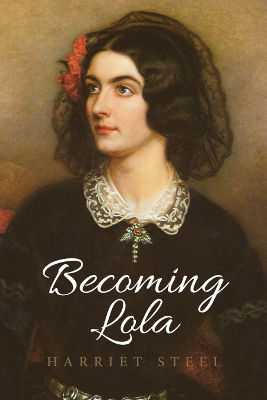 Lola Montez, the heroine of my first novel, Becoming Lola. The novel tells her true story. She was a dancer, a businesswoman, an author, an actress and an inveterate traveller who was reputed to have taken hundreds of lovers (wilder accounts say thousands) in her short life. Although she claimed to be a Spaniard and of aristocratic descent, she was about as Spanish as boil-in-the-bag paella. She wasn’t much of a dancer either, but she was beautiful with mesmerizing eyes and oodles of sex appeal. Combining that with a strong will and a fiery temper that often got her into trouble, she turned herself into the most notorious adventuress of the Victorian era.
Lola Montez, the heroine of my first novel, Becoming Lola. The novel tells her true story. She was a dancer, a businesswoman, an author, an actress and an inveterate traveller who was reputed to have taken hundreds of lovers (wilder accounts say thousands) in her short life. Although she claimed to be a Spaniard and of aristocratic descent, she was about as Spanish as boil-in-the-bag paella. She wasn’t much of a dancer either, but she was beautiful with mesmerizing eyes and oodles of sex appeal. Combining that with a strong will and a fiery temper that often got her into trouble, she turned herself into the most notorious adventuress of the Victorian era.
It was said of her that, after Queen Victoria, she was for a while the most famous woman in the world, so it’s hard to say why her name is virtually unknown today. I wanted to do my bit, however small, to bring her back to people’s attention. Lola was very witty and a great conversationalist. I’m sure she would have plenty of amusing anecdotes to tell to pass the time on the flight.
My other choice would be William Shakespeare. One of the great mysteries of literature is who he really was, and I’d love to know the answer. With my interest in theatre, I’d also love to hear about his experiences as a playwright in Elizabethan times when the foundations were laid for the theatre we know today. He’d be an amazing source for research, and I’d hope to pick up some great tips on writing too! One of my historical novels, Salvation, is set in that era.
Do you prefer to write in silence or with background music? Why?
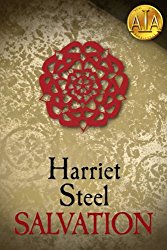 I’ve tried to write with background music but ended up finding that silence is best. If the music’s any good, it distracts me, and if it isn’t, it’s just an irritation. The only sound I have been comfortable with was the snoring of our now sadly departed cocker spaniel, Ollie. He always took up his snoozing position under the desk with his chin on my foot when I was writing.
I’ve tried to write with background music but ended up finding that silence is best. If the music’s any good, it distracts me, and if it isn’t, it’s just an irritation. The only sound I have been comfortable with was the snoring of our now sadly departed cocker spaniel, Ollie. He always took up his snoozing position under the desk with his chin on my foot when I was writing.
What motivates you to write?
At the risk of sounding clichéd, it’s something I really need to do. If I’m away from it for more than a few days, I get withdrawal symptoms. Once I’ve sat down to write, the time simply flies; when a story’s going well, it’s a wonderful feeling.
Why have you chosen to write a series? Do you know how many books will be in it?
I like the idea of characters who come with me from book to book. It also gives me the opportunity to put them in new situations without the risk of a story becoming disjointed. After three books in the Inspector de Silva series, I feel I’ve got to know my regular characters very well. Writing about them is like spending time with old friends.
As to how many books the series will end up running to, I wouldn’t like to predict, but so far, the ideas are still flowing!
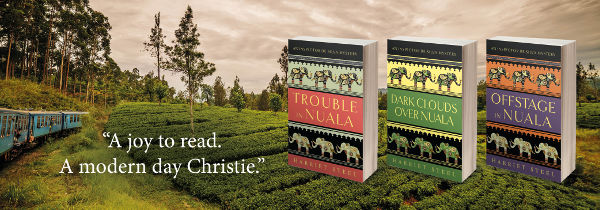
Who is your favorite character and why?
Inspector Shanti de Silva himself. He’s pragmatic but principled with a dry sense of humour. A happily married man, he likes books and gardens as I do. There are so many murder mysteries around that feature detectives with messy private lives. I wanted Shanti to be a normal sort of man who must deal with abnormal situations as part of his job.
How important is setting to your novel?
It’s crucial. I aim to draw readers into the world I’m writing about and make them feel as if they’re seeing the action unfold in front of their eyes. As a reader, my favourite books are ones with a strong sense of place. Where people live makes a huge contribution to how they live their lives and interact with each other.
Do you read books by other authors when working on a first draft, or do you prefer not to?
I read a lot and it’s no different when I’m working on a first draft. I know some writers say it’s a time when they find other authors’ books distracting but I never have. I think that if you want to be a writer, you need to be a reader too. I do tend to choose books in a different genre to the one I’m writing in though. It’s easier to switch off from the creative process that way.
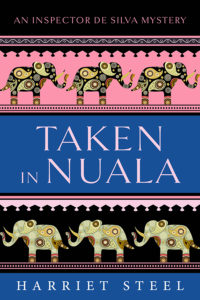
What are you working on now?
I’m working on the eighth book in the Inspector de Silva series and hope to have it out in May. This time, Shanti is presented with a crime he hasn’t encountered before – kidnapping – so be ready for plenty of edge-of-the-seat drama.
Thanks for stopping by, Harriet!
For details of all Harriet’s books and links to buy, please visit her website, blog, Facebook page or Twitter profile.
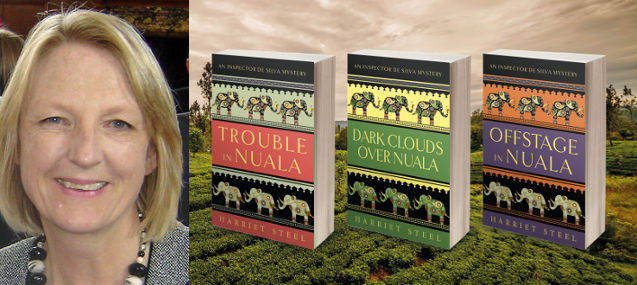
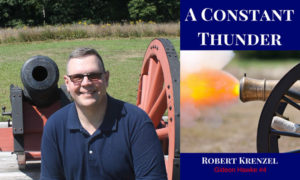
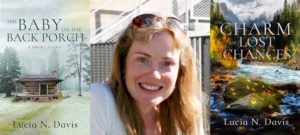
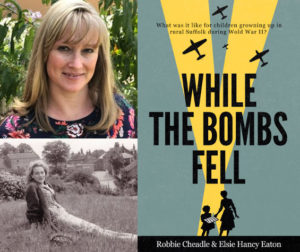
Pingback: Spotlight On… – Jennifer S. Alderson
This interview was very interesting. I like when I know about the author and understand what makes them tick! I ‘ll be checking her books! Thank you so much!
Thank you so much for the invitation, Jennifer.
My pleasure, Harriet! I really enjoyed Trouble in Naula and look forward to reading more of the Inspector de Silva series. Take care!